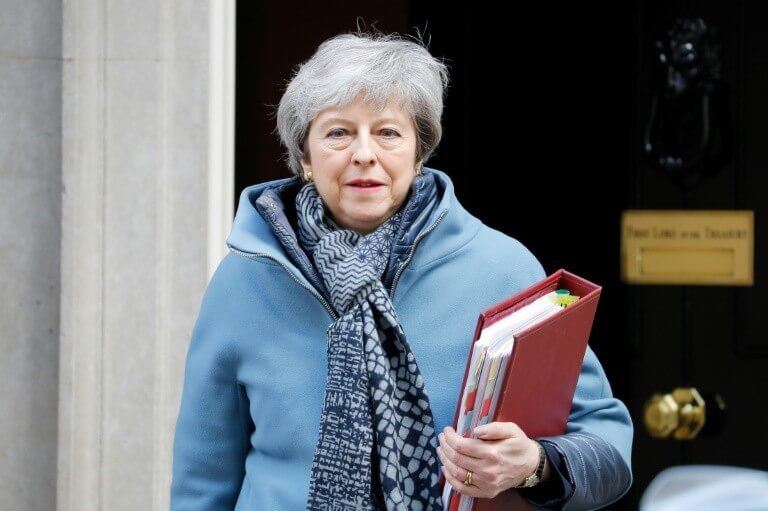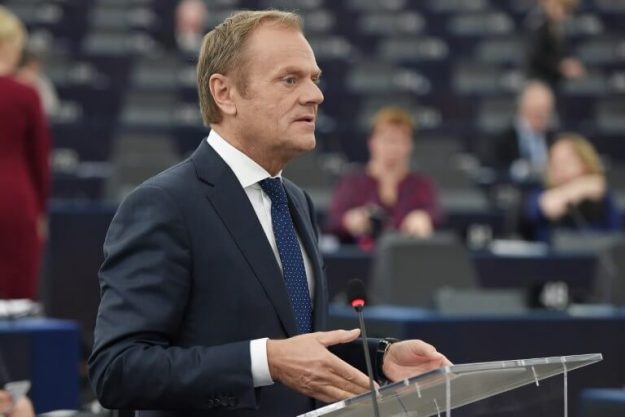Brexit: Theresa May Requests a Postponement to 30th June, Donald Tusk Suggests up to a Year

A few days before an extraordinary summit in Brussels, the British Prime Minister has requested a postponement of Brexit on 30th June to the President of the European Council Donald Tusk.
The British Prime Minister Theresa May asked a Brexit postponed until 30 June 2019, in a letter sent Friday, April 5th at the European Council President Donald Tusk , who for his part suggested his side postponement “flexible” going up at 12 months.
The head of the government informs in this letter Donald Tusk that the United Kingdom requests an extension of Article 50 of the Lisbon Treaty, which governs the departure of an EU member state, and proposes that this postponement be concluded June 30th, 2019 “at the latest.
An extraordinary EU summit is scheduled for the 10th April in Brussels to discuss the further process according to the solution found in London .
“The government’s policy has always been and remains to leave the European Union in an orderly manner and without undue delay,” writes Theresa May.
Do not participate in the European elections
The British government explains that it is seeking at the same time to obtain an agreement “that allows the United Kingdom to withdraw from the European Union before the 23rd May 2019 and thus cancel (participation in) the European elections “. But she stresses that he will “continue preparations for holding these elections if this is not possible”, hence the request for postponement.
Donald Tusk suggested on Friday that the EU gives London a “flexible” postponement of up to 12 months, according to a senior European official.
“This is an idea of Donald Tusk, it will be presented today to the member states,” told AFP a senior European official.
But this proposal may not raise the enthusiasm of all Member States, worried to keep the UK on a lasting basis with one foot inside and the other outside the EU, which may permanently disrupt the EU. operation.

Avoid a “no deal”
In London, Theresa May began this week talks with the Labor opposition to find a compromise likely to be supported by a majority of deputies and avoid a “no deal”, a brutal exit without agreement and without transition , much feared scenario by British economic circles.
The UK is exploring this a way out of the political crisis following the three-time rejection by the MP’s of the EU withdrawal treaty negotiated by Prime Minister Theresa May with Brussels. Scheduled for March 29th, Brexit has already been postponed to April 12th in the hope that an agreement approved by Parliament will be found by then.
“When the will is there, we get there,” German Chancellor Angela Merkel said Thursday , hoping that the talks between conservatives and Labour will succeed.
The chancellor, who was speaking after a meeting in Dublin with her Irish counterpart Leo Varadkar, said she still hoped for an “orderly exit” from the UK’s EU.
For his part, Leo Varadkar reiterated his commitment to an open border in Ireland, allowing for free movement of people and smooth, uncontrolled trade at the border between the British province of Northern Ireland leaving the EU and its neighbour the Republic of Ireland.
British and Europeans seek to avoid the return of a physical frontier in order to preserve the 1998 peace accords that put an end to thirty years of unrest between Protestant Unionists and Republican Catholics. But by rejecting the withdrawal agreement Theresa May, British MPs said no to the device of last resort, the “backstop”, designed to ensure the absence of border.
Theresa May’s outstretched hand to the opposition has provoked anger among supporters of a frank break with the European Union, who fear London may opt for a softer exit that maintains close ties with the EU.
Enjoyed this? Get the week’s top France stories
One email every Sunday. Unsubscribe anytime.


